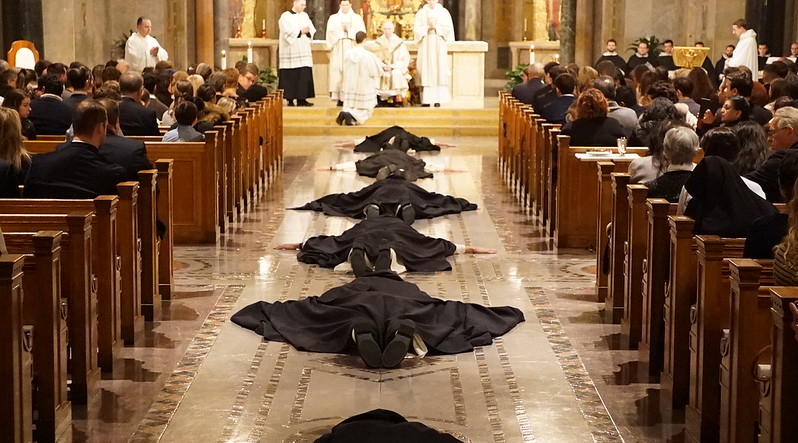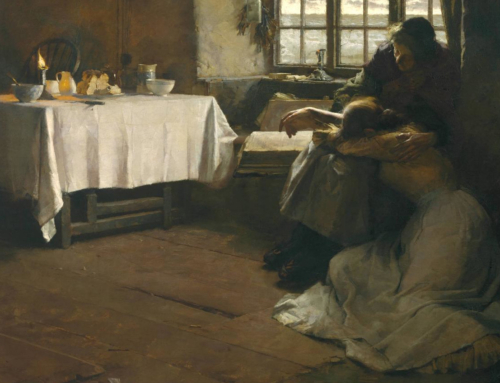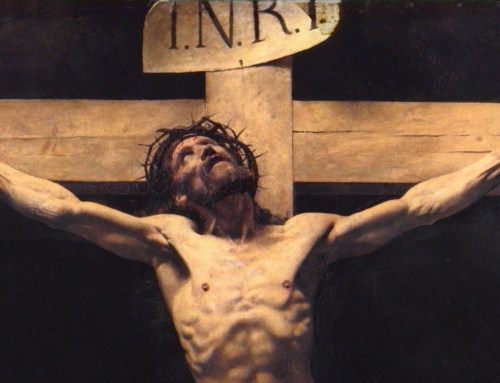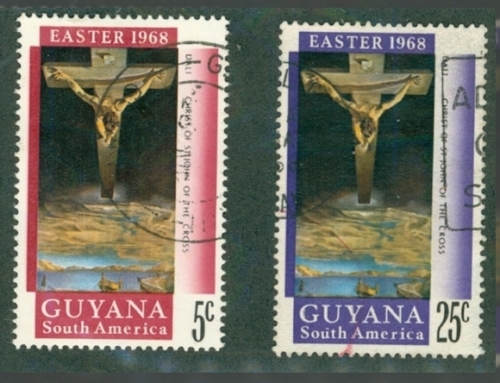My brothers are going to die tomorrow.
It might sound over-dramatic to describe Solemn Profession as dying, but death is at the heart of religious life. Professing religious vows of poverty, chastity, and obedience intensifies baptism, which is a sort of death. As St. Paul says, “Do you not know that all of us who have been baptized into Christ Jesus were baptized into his death?” (Rom 6:3).
To riff off St. Paul, those who are vowed into Christ Jesus are vowed into his death. The formula of Solemn Profession makes this incorporation clear. The long formula ends with the stark promise of obedience “until death” (usque ad mortem). That phrase comes from Philippians 2:8, which describes Christ as obedient “unto death, even death on a cross” (usque ad mortem, mortem autem crucis).
The promise “until death” refers to totality as well as duration. The Dominican promises to be faithful not only every day of his life, but also in all areas of his life, in every corner of his heart, in the depths of his soul. By vows of poverty, chastity, and obedience, he dies to all external things and all goods of the body and soul—he sacrifices every aspect of his life. Like Christ, he embraces the cross. During the Solemn Profession ceremony, the brothers express this by prostrating cruciform. With arms out-stretched, forehead and chest pressed to the cold stone floor, the brief discomfort of this posture gives the friar a symbolic taste of his share in Christ’s cross.
Religious life stretches a friar on the cross so that he can become, like Christ, totally God’s. Christ’s death on the cross most perfectly manifests that he lived totally ad Patrem, totally for and toward the Father. Christ’s entire life was a holocaust, a whole-burnt offering, a sacrifice for the Father. The religious imitates and joins Christ through his own holocaust. His vows make him a living sacrifice, conforming him to share more deeply in Christ’s life. Like St. Paul, he desires to say, “it is no longer I who live, but Christ who lives in me” (Gal 2:20).
The driving force that animated Christ’s life and impelled him to the cross was his intense charity. “Our God is a consuming fire” (Heb 12:29), burning with love. By the death of religious vows, the friar is ordered to a more perfect share in Christ’s fiery love. He is made to be like firewood doused in gasoline—combustible. Ignited by the fire of divine charity flaming through his soul, the friar becomes a conflagration whose heart burns with the same desire of Christ who “came to cast fire upon the earth” (Luke 12:49). In zeal for the salvation of souls, the Dominican desires to cast the fire of divine charity upon the earth of cold hearts that they might be kindled into flame.
May my brothers, like the vision of St. Dominic as a dog with a burning torch in his mouth, run throughout the whole earth, setting others ablaze.
✠
Photo by Br. Benedict Hernandez, O.P. (used with permission)







